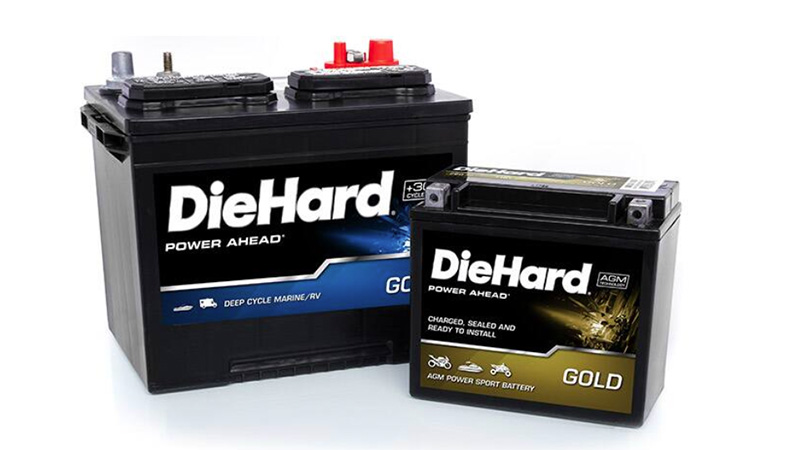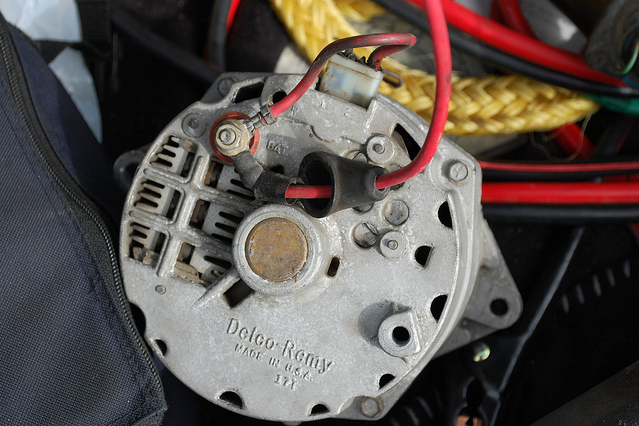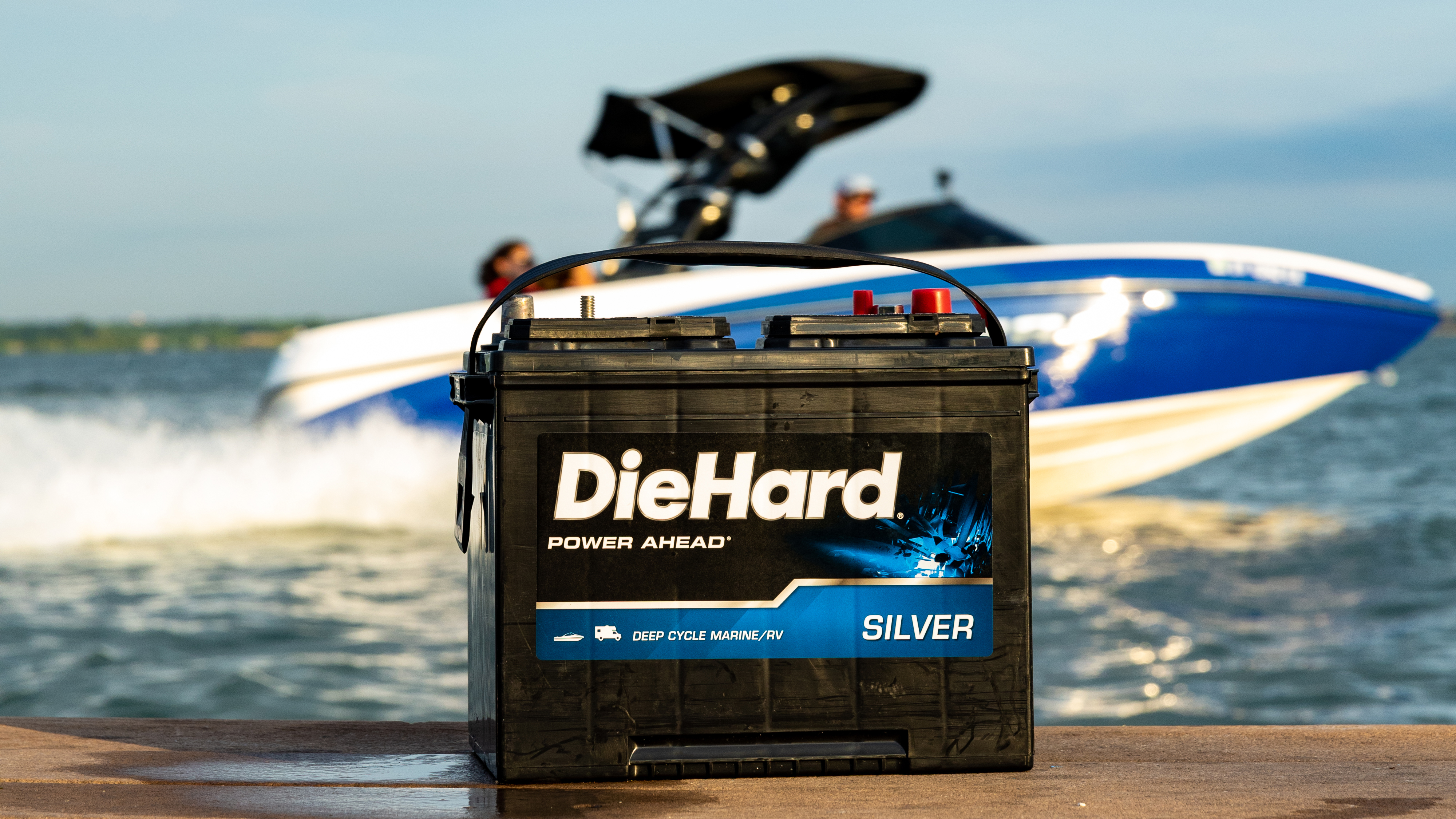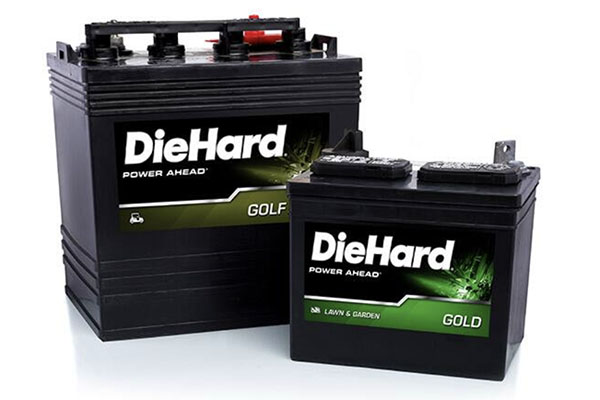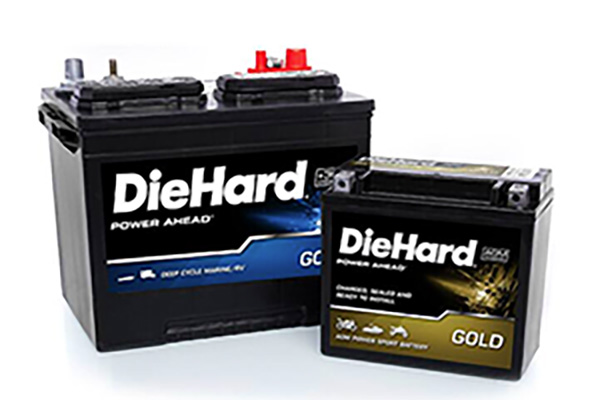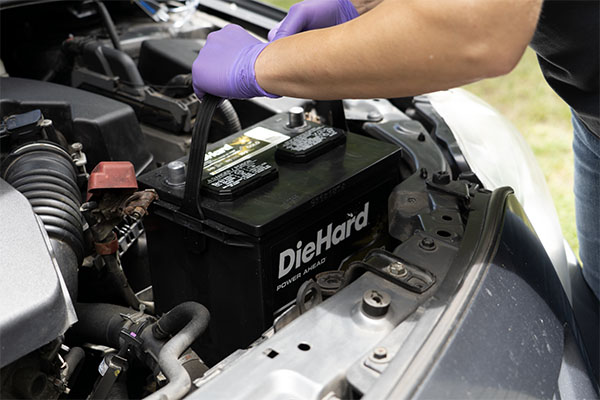There are few things worse than turning the key and hearing nothing but a loud click, click, click, as the gauge lights fade. Your battery is dead. It's time for a new one, but when you start your search there are, well... let's just say "a ton of options" would be an understatement. Not all batteries are equal, and different vehicles have different requirements. Here's what you need to know before you hit the store for a new battery.
For comparison: car batteries
Each battery listed here works generally the same way: A positively charged metal plate with a negatively charged plate in an electrolyte solution create an electron flow that you know as a useful electrical voltage (potential) and amperage (capacity).
Modern cars run on 12-volt electrical systems, and auto batteries are designed to work with this voltage. Manufacturers design standard flooded automotive batteries to deliver a quick burst of energy to quickly start the vehicle. We measure this by the battery's CCA rating. A Honda Fit 1.5L can get by with lower CCA than a big block Chevy Chevelle 7.4L, so pay attention to what your ride needs.
The energy storage is shown as reserve capacity, which is less important in a car, as running the lights, radio, and such are the job of the alternator. It seems obvious, but you should stick with a car battery for cars.
Marine batteries
You may have seen a battery at the parts store that is the size of a car battery, but the label states it's for marine use. So what is a marine battery? A marine starting battery is quite similar to a car battery, but the differences matter. A boat battery has thicker plates so they don't shake apart and fail under heavy wave impacts.
Also, you'll notice the battery is rated in MCA. This is Marine Cranking Amps, which is the same as CCA, but at 32 degrees. Boat batteries have to act like a car battery for engine starting but also need to be able to provide “deep cycle" capacity for running that radio, GPS, or fish finder with the engine off. So, depending on need, there are specific starting batteries and deep cycle batteries.
Lawn batteries
A lawn mower battery is, again, a different item. A battery for a riding mower doesn't need to take on pounding waves, so it's built more like a car battery. So how long does a lawn mower battery last? When properly maintained during the off seasons, the lawn mower battery last years, even with inconsistent use.
Lawn mower batteries are usually 12-volt. You'll also notice they're considerably smaller than car batteries, and tend to be cheaper, too. Lawn mower batteries often have one-third the CCA of a car battery, due to the heavier duty starter required for cars versus mowers.
Farm batteries
Farm batteries are deep cycle batteries with a CCA comparable to a car. This is because tractor engines have roughly the same electrical need at startup compared to your car or truck. On the other hand, the deep cycle is needed here due to the tractor usually running at idle or just off idle.
The tractor's alternator can't quite charge the battery at low engine speeds, so the battery needs to have a large reserve capacity. Farm batteries are also heavier duty than car batteries, due to the need to stand up to more bumps, ruts, and off-road work. You can use a farm battery in a car if you have to, but a car battery in a tractor won't last long.
Golf cart batteries
Golf carts vary significantly between manufacturers and models, so the batteries vary, too. Golf carts operate on 36V or 48V electrical systems, with a set of batteries running usually 6, 8 or 12 volts. Definitely read the label before buying. With that said, they also differ in being true deep cycle batteries with a huge rating for amp hours. This is the ability to provide low power for a long time.
Unlike marine batteries that can start engines and provide deep cycle, a golf cart doesn't have to deal with starting a large engine, so CCA isn't a factor here. The golf cart needs reliable power for an extended period of time because the battery is the only source of power. Flooded GC batteries aren't maintenance free. They need to be properly charged after use and electrolyte level must be checked regularly. Top off the electrolyte level in the batteries by adding distilled, deionized or demineralized water to the proper fill level. When the battery finally needs replacing, go with the same voltage as the factory batteries. For example, if your 48V cart has six 8V batteries, buy those six again rather than trying to upgrade to 12V. And don't try to use a golf cart battery in your car, or vice versa.
Power sport batteries
Your Jet Ski, snow machine, and ATV run power sport batteries that are specific to the demands of those machines. Most power sport batteries are 12-volt, like your car. That's about where the similarities end. Smaller engines mean easier starting and thus lower CCA, so you probably wouldn't want to run your Jet Ski battery in your F-250.
You'll notice a bunch of different technologies in power sports, as well as some labeled “AGM." That stands for Absorbed Glass Mat, which is a construction technique where fiberglass separators fully absorb the electrolyte and then are compressed during insertion. These batteries are highly vibration resistant, but AGM does not mean deep cycle.
AGM powersport batteries are not all the same. There are two different types: Dry Charge AGM and Factory Activated AGM. Factory Activated AGM power sport batteries allow you to take the battery off the shelf and use it immediately. Dry Charge AGM is still an AGM battery, but you have to fill the battery with acid and then charge 8-12 hours before you can use the battery.
Charging a Jet Ski battery is similar to charging a car battery, with the exception of using only the slow charge setting here, as most powersports batteries won't like a 125V engine start setting.When it comes to batteries, the lesson of the day is: use the right battery for the right application. The batteries are internally different and will serve you well in the right vehicle. Remember, like anything else, maintenance is key. Keep it charged with a decent battery charger, and you'll have a reliable battery that lasts for years.
How do you extend the life of your batteries? Let us know in the comments.
